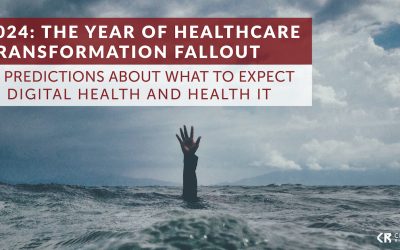The Healing Power of Your Own Medical Records
Steve Lohr for The New York Times
“The more of these stories that come out, the more that society will understand how inequitable and broken the healthcare system is for patients. Data access is an important piece of this article, but beyond a handful of general examples provided herein (including OpenNotes and the Argonauts project), it’s clear that there is not a roadmap for this sort of thing. Interestingly, there is no mention of the blue button initiative – a telling sign?” – Naveen
A Long Road Ahead: Achieving True Parity in Mental Health and Substance Use Care (PDF link)
NAMI Report
“National Alliance on Mental Illness (NAMI) issues a report that details a long laundry list of issues with the current state of behavioral health – much higher denial rate on claims for behavioral health services than other health services, lack of adequate access in narrow network programs, and high out of pocket costs for prescriptions to treat their illnesses. If personal health management has any chance of succeeding especially with people who are ‘super-utilizers’ a lot more attention needs to be paid to integrating behavioral health services instead of largely lip service.” – Matt
Pay for Performance Extends to Health Care in New York State Experiment
Anemona Hartocollis for The New York Times
“In New York and several other states, Medicaid experiments occurring alongside ACOs include this example of a Delivery System Reform Incentive Payment (DSRIP). The feds have allowed New York to reinvest $8 billion of Medicaid funding over 5 years with a goal of reducing avoidable hospitalizations. This story describes the experience of New York’s largest participant, Advocate Community Providers, which has 770,000 attributed patients. HealthIX, a RHIO centered on New York City is providing information exchange.” – Brian
Reinventing the Way Medicaid Delivers Care
Sachin H Jain and Leeba Lessin for The Harvard Business Review
“Important and underdiscussed topic here – what do we do with Medicaid? Sachin Jain and Leeba Lessin from CareMore (an Anthem subsidiary) discuss a pilot in Tennessee that aims to turn the public program into “a care delivery model rather than (an) insurance program.” The approach is similar to many medical home models, with some components specific to Medicaid populations’ needs: behavioral health integration, and an added emphasis on reducing ED use. While programs like Iora are getting the spotlight nationally for their approach to transforming care practices for commercial and Medicare populations, real cost-savings potential exists in Medicaid, too.” – Naveen
Sentinel Event Report: Safe Use of Health Information Technology (PDF link)
Joint Commission Report
“The Joint Commission’s most recent Sentinel Event Alert is a fairly comprehensive restatement of state-of-the-art thinking about patient safety and EHR design. It emphasizes learning from mistakes, changing processes safely, and the idea of looking before leaping into new technology. Nearly every specific recommendation spring from common sense which makes you wonder how often TJC sees counter examples when it conducts a survey.” – Brian
Missed Connections: The Adoption of Information Technology in Canadian Healthcare (PDF link)
Dennis Protti for C.D. Howe Institute
“US is far from being alone in its struggles to realize the potential of its EMRs investments and achieve widespread data exchange among clinicians. Canada is having many of the same issues and also dealing with a lack of interoperability blamed on many of the same issues the US healthcare system is having – widespread care fragmentation and its current payment structures which don’t incent data sharing. Authors from the C.D. Howe Institute recommend many of the same solutions the US is trying to encourage widespread spread interoperability including providing incentives, holding clinicians accountable for data sharing goals, and preventing vendors from rending data ‘inaccessible and/or expensive to access.'” – Matt




0 Comments